Gen X Women Discuss: "Nobody Wants This."
Netflix’s #1 rom-com about the interfaith coupling of “hot rabbi” and “blonde shiksa” is taking the entertainment world by storm.
To tackle this review, I've enlisted the help of two sharp, witty, and pop-culture-savvy Gen-X Substackers. These writers, known for their eloquent prose, coincidentally asked for my thoughts on the show before I'd finished watching. Rather than rushing my response, I realized their perspectives could add valuable insight to my own viewing experience, making this collaborative approach all the more intriguing. So, naturally I punted the task, but really it was because as I found myself watching, I was so curious as to their takes.
So with, please welcome
and with a roaring round of applause. 👏Synopsis & Hot Takes
In 5 words or less describe this show.
Ingrid: The show to watch if you need a fun rom-com after an exhausting week. Ok that’s a little more than five words.
Beth: Sassy, irreverent, different, superficial, lacking depth.
In watching the uber popular new, semi-autobiographical rom-com, Nobody Wants This. by series creator and funny gal Erin Foster, I was struck with a lot of mixed emotions. Foster, who converted to Judaism when she married her Jewish husband, music exec Simon Tikhman is by many estimations a Hollywood nepo-child. She is the daughter of music exec, David Foster, and Katherine McPhee’s stepdaughter and best friends with Kate Hudson, Goldie Hawn’s daughter. Much like the siblings on Nobody Wants This., Joanne (Kristin Bell) and Morgan (Justine Lupe ), she and her sister Sara, have a podcast in which they very publicly explore their sibling dynamic and relationship across a span of topics ranging from motherhood to romance to infertility. Similar to Adam Brody’s character Noah on the show, Foster’s husband is more private.
Sheila: The show takes a rom-com framework and attempts to ground it a bit more by focusing on the central tension between Joanne, a non-Jew and, it seems, quasi-atheist, who falls for Noah, a “Hot Rabbi,” deeply dedicated to his profession and spiritual beliefs.

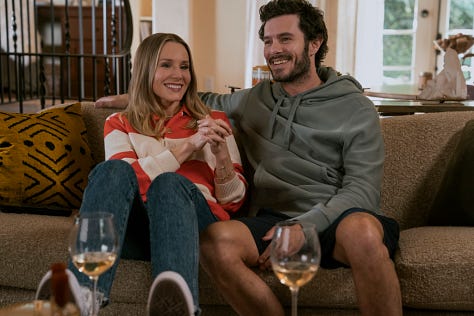

What I mean by “grounding” is that instead of relying on dopey, comedic devices like elaborate schemes to either further or stall the romance, the show probes the characters’ anxieties and insecurities about the gravity of the relationship through conversation and, mostly, realistic experiences that come with being in a new relationship.
I think this is part of what reviewers are responding to in terms of this show feeling somewhat different and relationship-romance positive. I was particularly happy to NOT see any women falling down or getting tangled in charging chords or any of those other kind of embarrassing rom-com elements.
Ingrid: More than once during the show, a little voice would crop up in my head critiquing certain points, but I kind of tried to tune it out because I just wanted to relax and watch a fun romcom. I enjoyed the acting. The dialogue was witty. I loved Sasha’s character. There were some lol moments, like Sasha anticipating an evening alone at home, only to have his daughter return.
How credible was the onscreen sibling relationship and these characters’ behaviors over all?
Sheila: I think the sibling relationship is mostly credible, though borders on toxic. Morgan seems intent on sabotaging and undermining Joanne’s relationship for her selfish ends: to keep her sister close; to keep their podcast more “on brand” and in tact; and because she genuinely seems jealous of Joanne’s happiness and growth. Maybe they are a bit co-dependent? They seem to be able to easily resolve a particularly nasty and hurtful fight near the end of the series, which I found a bit convenient. Assuming there will be a second season, I think the writers need to address more of Morgan’s behaviors and attitudes. It would be gratifying to see her grow and be challenged in some ways as well.
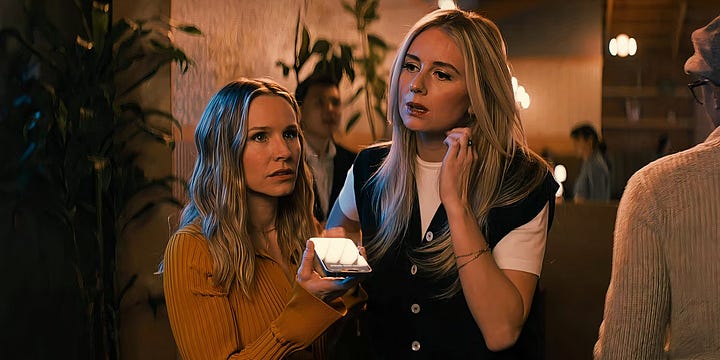

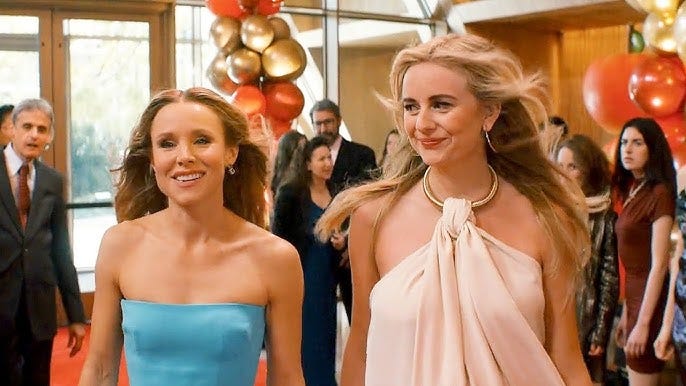
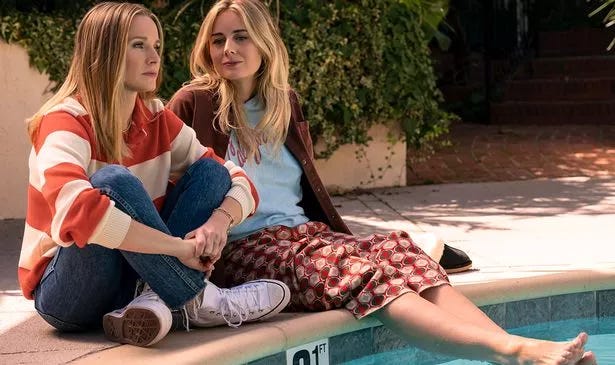
Beth: As comedian Ginny Hogan wrote in her Substack note, “Nobody Wants This” is peak LA, mostly because it’s actors in their 40s playing characters in their 30s who act like they’re in their 20s. That sums up my thoughts on the vibe of these characters, which makes them especially hard to relate to.
The sisters, I rooted for in theory, because who doesn’t root for an XX-sibling duo, but they fell short for me in the personality department. The chemistry was there and I bought that they were sisters. The hard part for me was their behavior was so off-putting - like stunted adolescents. This could be going back to the Hogan quote and that they seem too old for how they act, but I tried to be mindful that L.A. is a different culture (I’m in Boston), the story is mostly set in an affluent socio-economic world, and that Joanne and Morgan are sexy single ladies, which is banged into our head on a number of occasions, especially when they are entering into a place with Jewish men.
And I agree on the sabotaging and self-serving aspects inherent in the Morgan-Joanne dynamic which may have been realistic byproducts of Morgan’s jealousy of Joanne’s new found healthy and happy relationship, but the relationship was fraught.
Ingrid: I found the sibling relationship credible. For siblings on screen, you can get away with quite a lot because the relationships vary so much in real life too.
Actually, what I think Nobody Wants This. did best with the sibling relationship was to show how toxic voices get internalized.
Morgan puts her sister down a lot and there was some jealousy there too. I could often see the internalization of Morgan’s toxic remarks in Joanne’s behavior and lack of self confidence/belief.
At the end of the show, I do think the sister conflict resolved itself a little too easily, and the toxic part of the way Morgan talked to Joanne was pushed under the rug and not addressed enough.
Beth: TOTALLY!
Characters that felt real to you or were handled well / Characters that were lacking
Ingrid: Beth, I agree with you on the age remark— “Nobody Wants This” is peak LA, mostly because it’s actors in their 40s playing characters in their 30s who act like they’re in their 20s. I remember at one part noticing the skin peeking out from Noah’s high sweater which looks completely normal for the skin of a man in his forties. But it gave me pause: up to that point I had kind of presumed that they were in their late twenties/early thirties. (Maybe I’m weird for noticing little things like that). And then I wondered if that was why Noah was always in highish necklines— because they want him to appear younger than he is.
Sheila & Beth exclaim in unison: HECK YEAH! Ok, why didn’t we see this?
Ingrid: On the subject of Noah: yes, we love him because he’s the hot rabbi and he’s a dream guy— the “I can handle you” comment. Which woman wouldn’t love that? But, especially with him, the further into the show I got, the more I wanted him to have a character flaw. But he didn’t. With the box incident when he found out Joanne opened it and looked in, he didn’t seem upset at all that she would have invaded his privacy. That would have been the perfect spot for some conflict, at least a little argument or something. It was a wasted opportunity. Or in episode 9, at the Thanksgiving dinner, Noah makes the: “Mom, enough!” comment. At least give him the fault of not being able to stand up to his mother. Some weak point, please!
Shiela: In Season 2 they are going to have to put a bit more dirt under this guy's fingernails or else you're going to have people writing about how “hot rabbi” is the new AI boyfriend! :)
Beth: Is “AI boyfriend” trademarked yet?
Ingrid: In contrast to Noah’s perfection, Joanne seem even weaker and more neurotic, and gives the relationship somewhat of an unhealthy balance.
In regard to the one-sided portrayal of Jewish women characters on the show. I do see it. I found it similar to how North American/British shows and films often portray Indian characters (I’m half Indian). They’re frequently used for comedic relief, which gets tiring to be honest. Indian mothers too, in particular, tend to be characterized in a stereotypical way.
Sheila: Joanne feels real to me. I appreciated that she is willing to grapple with her larger, more existential anxieties around “Am I a good person?” I was moved (and I thought it was a smart development) when she shared some truth with Noah–even though she couldn’t physically face him.
That detail endeared me to her; we all want to be able to look people in the eyes and spill the T, but IT IS HARD and painful. Sometimes you need a little security blanket to make that move.
Sasha feels real to me. When he helps Miriam with her “boy problem” and is genuinely proud and happy and feels closer to his daughter for it–that was sweet and beautiful, both his actions and his obvious insecurities about “Am I a good dad?” that are underlying his home life. It’s a risk for a “light” show like this one to put those questions out there and not entirely resolve them, but rather to make the case that the questioning is more important than the answers. And this goes back to what Noah says in his sermon about the Jewish faith asking people to take on the big, hard questions.
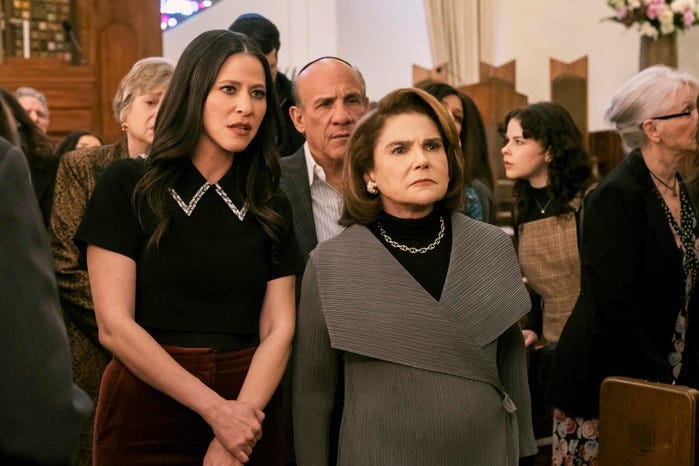
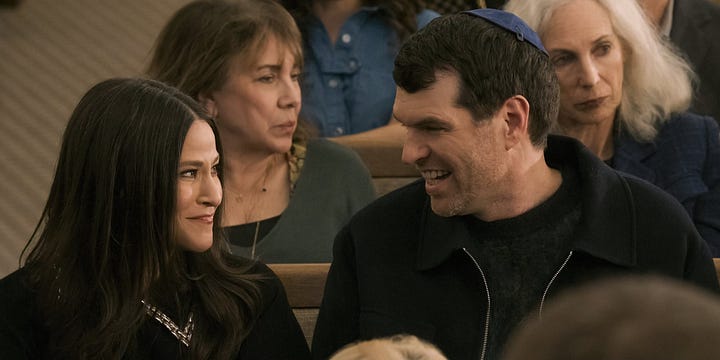
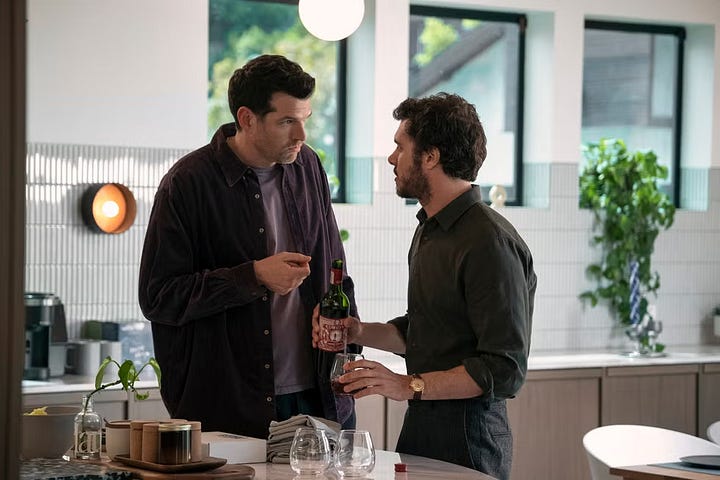
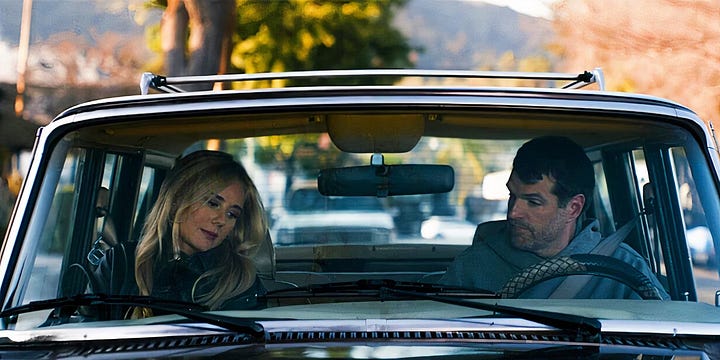
Unfortunately I felt like Esther (Sasha’s wife) comes off as one-note: she is bossy, domineering, keeps her husband on a tight leash; I hated that they referred to her in the context of not being fun as if a Jewish wife is for having children, raising a family, running the show (in a sense)--all very practical. Other types of women are for pleasure, fun, like taking a vacation from “real life.” I think that does a huge disservice to the character in particular and to Jewish women in general.
Beth: All good points. Both Brody and Bell did well with their characters. The main flaw here is the characterization of Jewish women and that makes me sad. Both Esther and Noah’s mom played over-the-top stereotypes of Jewish moms - overbearing, aggressive, and unwelcoming of people who aren’t like them. Going back to Erin Foster’s real life love story with a Jewish man and some of the criticisms she may have encountered from Jewish women in his life, I had to think this was some sort of retribution.
Conversely, Rabbi Shira (Leslie Grossman), as Noah’s mentor and the wise Rabbi, was such a luminous presence in the “keeping it real” department, I felt she and us, by extension, were short-changed by her half episode presence. We needed more of her. Sasha, Noah’s brother, fit the putz profile here, which coincidentally, Timothy Simons, the actor also played in Veep as Jonah. The concept of being “loser siblings” which Sasha dubbed him and Morgan was offensive, but also slightly funny. It had me wondering, “Am I the loser sibling in my family?” But, wait, I’m too neurotic, which means I’m a Joanne.
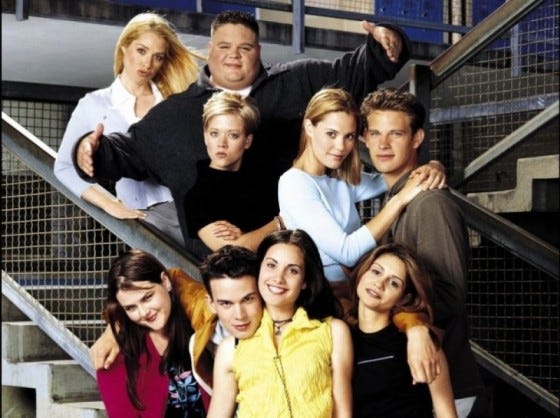
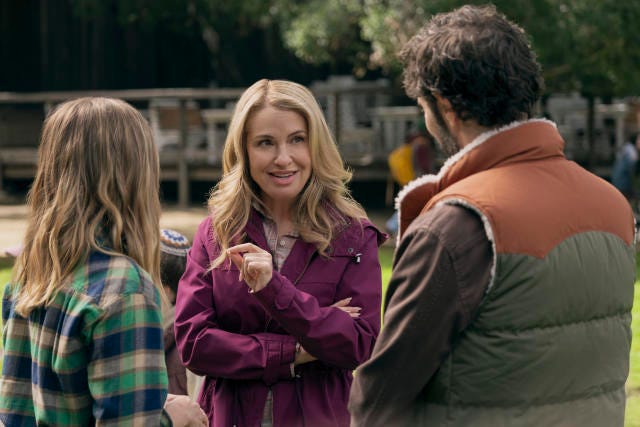
Thank you Ingrid and Sheila for hanging on the virtual couch with me.
Stay tuned for Part 2 where we tackle stereotypes and the representation of interfaith relationships with a special guest contributor! 🔔
Let’s Discuss - Sound Off!
What do you think of this show?
Any characters you loved? Hated?
Was the romance real? Could you feel the chemistry?
Should Sheila, Ingrid and I make a habit of doing such panels?


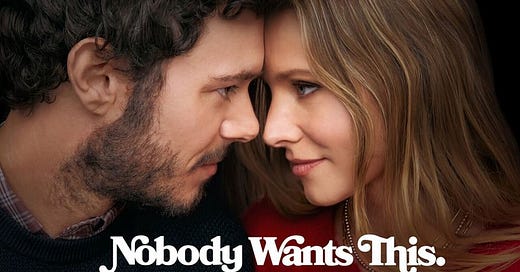





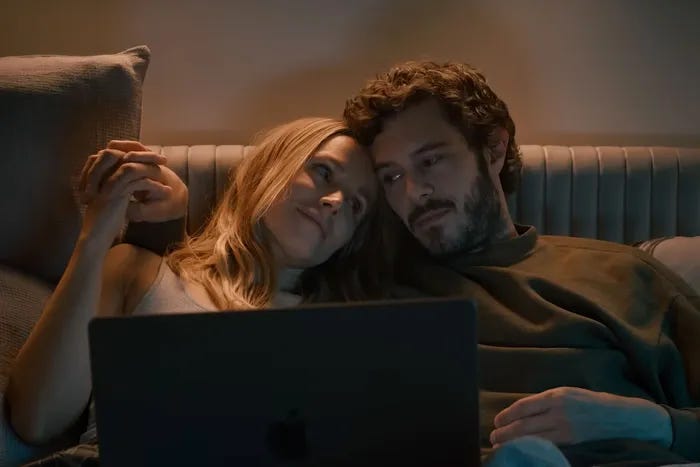


Spot on comments. While I noticed the Jewish stereotypes and mistakes (a Rabbi would never play Basketball on Shabbat and Jews do not proselytize) I was thrilled that Netflix produced a show about Jews— in this climate!
Yes to more panels! It was great watching the three of you riff off of one another.
I haven't seen the show yet, but tbh, just knowing Jonah from Veep is here is a big draw. Nice to see Adam Brody is aging nicely, but to me he'll always be Seth Cohen.